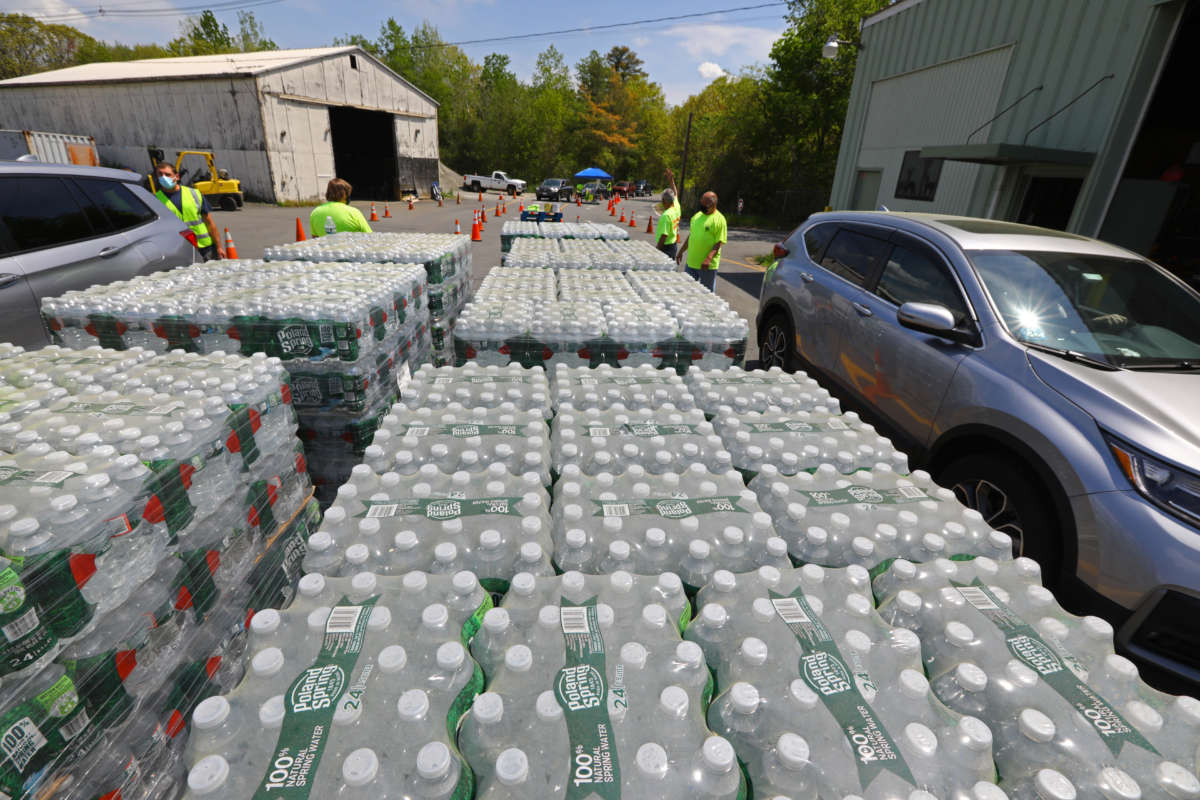Honest, paywall-free news is rare. Please support our boldly independent journalism with a donation of any size.
The U.S. Senate recently passed the Drinking Water and Wastewater Infrastructure Act. The legislation creates a $35 billion fund that will allow states and tribes to make urgently needed upgrades to their water systems, with additional considerations made for frontline communities. This kind of commitment to commitment to environmental justice is welcome, but also long overdue.
Clean water infrastructure has experienced systemic neglect in communities across the U.S. In Jackson, Mississippi, residents recently had to boil water for drinking, and thousands lacked access to non-potable water for flushing toilets. Unfortunately, these upsetting circumstances are common, particularly in communities of color.
Millions of Americans experience the dire consequences of toxic drinking water, which negatively affects quality of life, and can lead to a lifetime of debilitating health effects.
Black and Brown communities feel the brunt of this burden. Research shows that drinking water systems in communities of color are 40 percent more likely to violate clean water standards than in non-Black and non-Brown communities. This is environmental racism. And it’s destroying countless lives.
Like most forms of racism, high-profile tragedies like Flint, Michigan, grab headlines. But often, it’s a slow, quiet and deadly progression that devastates communities of color.
A recent study found Black children of families living below the poverty line are more than twice as likely to have elevated levels of lead in their blood than white or Hispanic children living under the poverty line.
For decades, petroleum refineries along the Mississippi River have polluted local waters with cancer-causing petrochemicals. In majority-Black Louisiana communities, there are more than 150 of these refineries, located between New Orleans and Baton Rouge in what has been ominously dubbed “Cancer Alley” due to the refineries that spew dangerous chemicals into the water.
Environmental racism also persists within the vulnerable communities surrounding chemical storage and industrial sites, where toxic floodwaters caused by storms or climate-related events carry heavy metals, oils and gas into local waterways. Individuals affected by these floods often face immediate health problems, including headaches, dizziness, and irritation to the eyes and throat.
These toxic floodwaters most often impact Black and Brown communities. A report co-written by the Center for Progressive Reform and the James River Association found more than 473,000 Virginians live in communities that are both high in social vulnerability and contain flood-exposed industrial facilities. Like the harm caused by petroleum refineries, this flooding can leave communities with significant long-term health challenges.
We’ve made slow progress in addressing other forms of institutional racism, but we’re only beginning to reckon with the cost of environmental racism. Flint was a wake-up call, but not nearly enough has been done to address the root problems or hold the perpetrators accountable.
Black and Brown communities don’t have the luxury of sweeping the problem under the rug. These communities live with the consequences of environmental racism daily. The quality of life and health impacts are only beginning to be detected.
The federal government has acknowledged the peril caused by environmental racism — the Environmental Protection Agency’s (EPA) National Center for Environmental Assessment concluded that non-white communities are disproportionately put at risk of health effects from pollution. Thankfully, we now have an administration that is signaling its intention to make decisions based on truth, facts and science. President Biden has expressed that environmental justice will become a central tenet of his administration, and has prioritized clean water infrastructure investment and combating climate change impacts in his Build Back Better plan.
Yet environmental racism is a decades-long abuse in this country. Action must come now. It’s imperative that Biden continue to take immediate executive action to reverse this horrific and systemic damage. The administration must also make up for lost time by prioritizing enforcement of our environmental laws to benefit the communities whose health and well-being have too often been afterthoughts.
The Biden administration has offered signs of hope. A reversal on Bears Ears National Monument and the Keystone XL pipeline are encouraging. The appointment of Deb Haaland, the first Native American to hold a cabinet position, to lead the Department of Interior, is another good start.
But these good intentions must become a firm reality.
The Biden administration must immediately implement its own agenda, including empowering a more aggressive EPA to expedite hazardous waste remediation and cleanups in frontline communities that have long carried the burden; establishing an Environmental and Climate Justice division at the Department of Justice to ensure environmental tragedies like those experienced in Flint do not occur again and that environmental lawbreakers are held fully accountable for the violence they unleash on their victims; overhauling and empowering EPA’s External Civil Rights Compliance Office with more staff and resources and a directive to focus on environmental justice to protect communities from climate change; and mandating stricter monitoring. A more fully engaged Office of Environmental Justice would also help address these urgent and necessary changes.
There’s too much at stake for Black and Brown communities. Too many lives have been expected to cede priority to the profits of polluters. Just look at Flint, or the other marginalized communities where something so vital as drinkable water is not guaranteed.
Enough is enough.
Clean water is a human right. It’s time to start treating it as such.
Speaking against the authoritarian crackdown
In the midst of a nationwide attack on civil liberties, Truthout urgently needs your help.
Journalism is a critical tool in the fight against Trump and his extremist agenda. The right wing knows this — that’s why they’ve taken over many legacy media publications.
But we won’t let truth be replaced by propaganda. As the Trump administration works to silence dissent, please support nonprofit independent journalism. Truthout is almost entirely funded by individual giving, so a one-time or monthly donation goes a long way. Click below to sustain our work.
